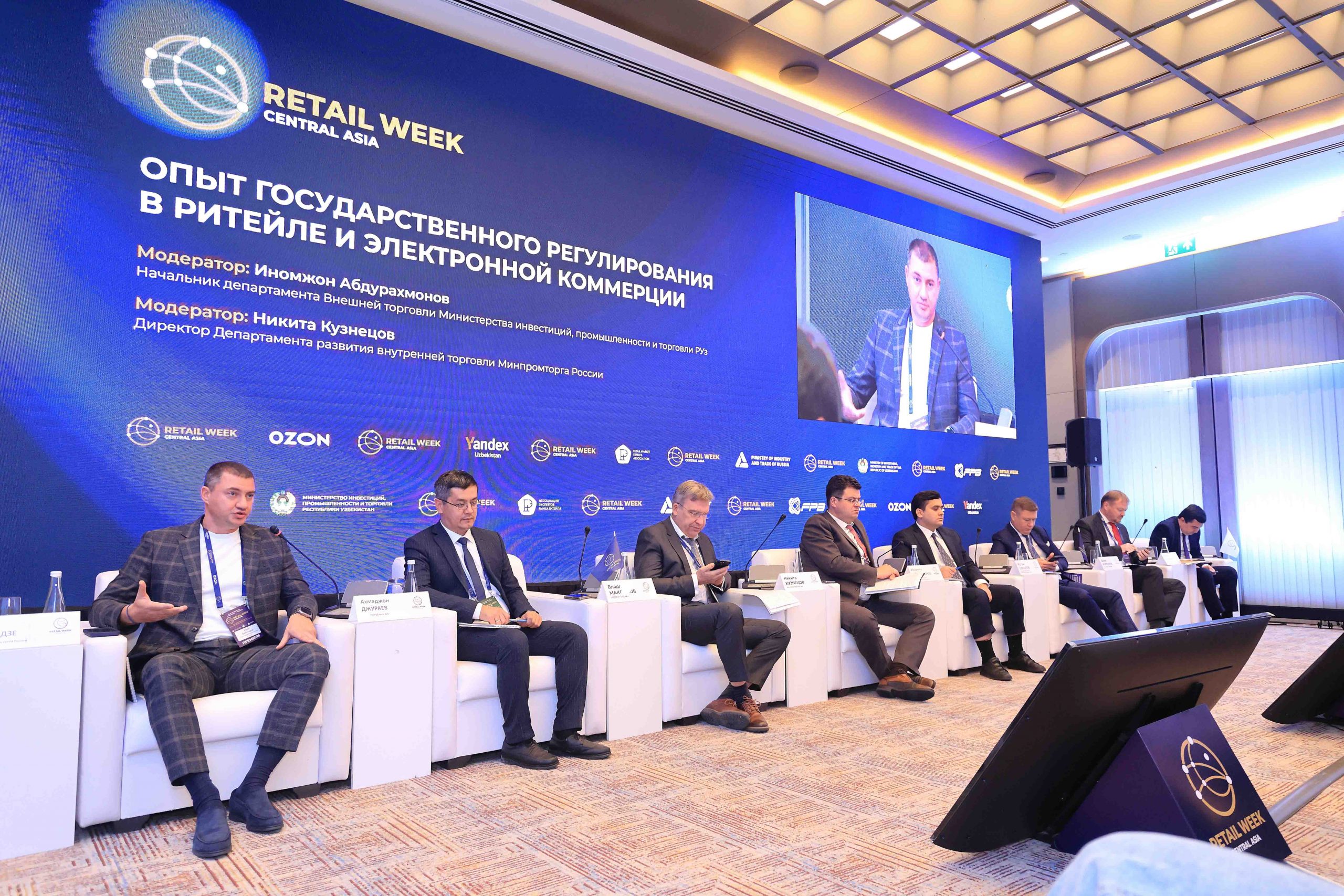For Directions of e-commerce and retail development were discussed at the Retail Week Central Asia forum during the session ‘Experience of state regulation in retail and e-commerce’, 16 October 2024 in Tashkent.
Akhmadjon Jurayev, Deputy Head of the Department for Development and Regulation of E-Commerce of the NAPP of the Republic of Uzbekistan, said that the sphere of e-commerce in the Republic is quite young, but is constantly developing in terms of technology. Last year it was transferred to the National Agency of Perspective Projects. The state, according to the speaker, stimulates the development of e-commerce in every possible way. For example, for legal entities there are reduced tax rates on profits in the amount of 7.5% instead of 15%, and for small businesses the rate is reduced from 4% to 2%, provided that the revenue from e-commerce is 90%.
The speaker also said that the growth of the e-commerce market has spurred the development of payment systems. Now there are 40 different platforms and about 30 mobile applications operating in the Republic. The turnover in instalments reaches $400-500 million a year. According to forecasts, it will reach 2 billion by 2027. The Republic is also actively establishing international co-operation in this area. In particular, an agreement has been concluded with the SCO and the Organisation of Turkic States. The expert is confident that these agreements will give a new impetus to the development of e-commerce in the Republic.
Artem Sokolov, President of the Association of Internet Trade Companies (AKIT), said that at the moment 15-16% of the market in Russia is occupied by online sales, while in some other countries it may already reach 30%. At the same time, 57% of trade is carried out through marketplaces. The expert estimates the market growth potential in Russia as twofold. The speaker also shared his vision of how e-commerce is developing. According to him, this market has a peculiarity – a world without borders, ‘you can order any product from anywhere in the world and it will be delivered’. He pointed out that Russia has a long history of regulating the e-commerce market at the legislative level. ‘It is important to keep the regulation in such a way as to allow it to develop, not to impose excessive requirements. It is important that the client has a set of guarantees so that it is possible to return money and goods, and this is always the key to success. We have a basic 7 day return guarantee no matter what the reason. This gives the customer a guarantee that they will not be cheated in the online channel,’ said the speaker.
During the discussion, the experts touched upon the problem of counterfeiting. Azimjon Akhmadjonov, Head of the Marketing Department of the Institute of International Trade of the Republic of Uzbekistan, noted that the Republic of Uzbekistan is actively fighting this phenomenon. The country has strengthened responsibility for the illegal use of other people’s trademarks and geographical indications. The practice of rewarding persons who reported violations in the field of counterfeit circulation has also been introduced. ‘Counterfeits are being destroyed in the presence of the media and the public. The role of the media in this matter has been strengthened,’ the expert summarised.
Nikita Kuznetsov, director of the Department of Domestic Trade Development of the Russian Ministry of Industry and Trade, said that Russia is developing at the legislative level strengthening the responsibility of e-commerce operators ‘for the goods that are sold on its platform, on pain of penalties.’ ‘They (operators, ed.) themselves have to figure out how to do it. To check each product for compliance with the licence or to come up with some algorithm,’ the expert believes.
Ivan Babukhadze, director of the Union of Independent Networks of Russia, agrees with his colleagues that business should be fair for all: ‘Laws should be applied equally to everyone – for online and offline trade. State regulation is the basis that will help online formats, and we will all work on the same competitive field’.
